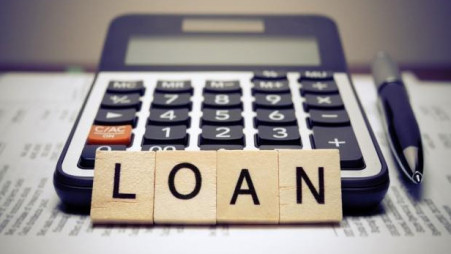Foreign loan pledges, disbursement fall
In FY23, the government expects $9.7bn in probable commitments, including budget support

Bangladesh has witnessed a decline in loan commitments and disbursements in the first seven months of the current fiscal year, while debt repayment spending has increased, making the country's debt burden more difficult to manage, according to the Economic Relations Division (ERD) data.
From July-January, foreign aid commitments fell by 62.4% to $1.76 billion – down from $4.69 billion in the same period last fiscal year, according to the ERD data published on Monday.
Foreign aid disbursement has also decreased to $4.25 billion – registering a 9.19% fall compared to $4.69 billion in the same period of FY22.
On the other hand, the government's loan repayment during the same timeframe saw an increase as Bangladesh paid $1.28 billion back to its development partners while the repayment volume was $1.22 million in July-January of FY22.
An ERD official said that many ministries and divisions were yet to submit preliminary development proposals for different projects in
"Many ministries and divisions are yet to submit preliminary development proposals for different projects in FY23, eventually leading to the delay in receiving the loan pledges."
FY23, eventually leading to the delay in receiving the loan pledges.
Though the lender has approved the loan in its board, government agencies could not table the projects before the Executive Committee of the National Economic Council (Ecnec) – pushing back the loan signing.
The official noted that the same inefficiencies and negligence in other projects affected the foreign assistance.
He also attributed discontinuation of vaccination support by foreign development partners this year to the plummeting aid commitment and disbursement.
According to ERD's annual borrowing plan, the government expects $9.7 billion in probable commitments in FY23, including budget support.
Owing to the economic shocks stemming from external and internal factors, the government is seeking more budget support this year from key development partners, including the International Monetary Fund (IMF), World Bank, Asian Development Bank (ADB) and Japan International Cooperation Agency (Jica).
So far, Bangladesh has received $250 million in budget support from the Asian Infrastructure Investment Bank (AIIB).
The country has received the highest $840.75 million commitments from the ADB, following the second highest of $300 million by the World Bank.
According to ERD data, Japan released the largest chunk of foreign aid for Bangladesh in July-January. The island nation disbursed $1.04billion to Bangladesh, followed by $695.47 million by the World Bank.
Of the key donors, the ADB released $638.33 million, China $562.65 million and Russia $463.84million and AIIB $328.83million to Bangladesh in the first seven months of FY23.
The government has set a $12 billion disbursement target for this year, as disbursement in FY22 stood at record $10 billion.
In the FY23 national budget, the government had originally proposed to spend Tk93,000 crore from foreign aid allocation. The figure has been proposed to be reduced to Tk74,500 crore in the revised development spending plan.



 Keep updated, follow The Business Standard's Google news channel
Keep updated, follow The Business Standard's Google news channel















